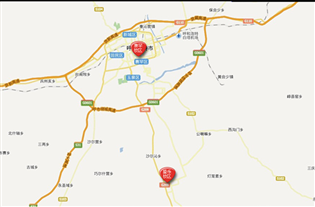College of Law and Politics
Established in 2006, the College of Law and Politics grew out of the Marxism Theory Teaching and Research Office, which became the Department of Politics Education in September 1959. In 1995, the Department of Politics Education was renamed the Department of Politics and Economics. In September 2006, this department was divided into two colleges, the Colege of Law and Politics and the College of Economics.
At present, the College of Law and Politics has five undergraduate majors, namely philosophy, law, ideological and political education, politics, and administration management. The major of ideological and political education is a key discipline in Inner Mongolia.
The college now runs a master's degree program for two first-level disciplines and one second-level discipline.
Moreover, the college has a key research base of social sciences -- the Ideological and Political Education Theory and Practice Base of Inner Mongolia Normal University.
I Discipline construction
1. Undergraduate and junior school disciplines
The college currently has five undergraduate majors -- philosophy, ideological and political education, law, administration management and politics and public administration science.
2. Master's degree program
(1) The college is authorized to give master's degree in philosophy as a first-level discipline. It now runs many master's degree programs, including Marxism philosophy, Chinese philosophy, western philosophy, logic, ethics, philosophy of science and technology.
(2) The college is also authorized to give master's degree in Marist theory as a first-level discipline. It runs several master's degree programs, including Marxism development history, the Sinicization of Marxism, the study of Marxism abroad, and ideological and political education.
(3) The college now has a master's degree program of scientific socialism and the international communist movement offered as a first-level discipline in philosophy.
(4) In addition, the college is authorized to award a master’s degree of education.
3. Teaching materials
In accordance with the needs of the school's Mongolian-teaching courses, the college has improved the supporting teaching materials for undergraduate programs. It has translated and compiled teaching materials for the ideological and political education and law majors taught in Mongolian. Two of the materials won outstanding achievement awards for ethnic education and teaching at the autonomous region level.
4. Construction of reference room
The college has increased investment for the construction of a reference room each year since 2005. It spends about 30,000 yuan annually on average to purchase books, newspapers, periodicals and other resources. As of December 2011, the reference room had 12,000 volumes of books and 93 newspapers and periodicals.
Ⅱ Scientific research
1. Scientific research institutes
In 2009, the college was approved to build a key research base of humanities and social sciences, which became the Ideological and Political Education Theory and Practice Base of Inner Mongolia Normal University. Professor Chen Jiang is the base's director.
(1) Research Institute of Mongolian Philosophy and Sociological Thought History. Established in 1981, the research institute focuses mainly on Mongolian ecological philosophy, and political and legal thought.
(2) Research Institute of Marxism Theory. Established in 2007, the research institute's key research fields include Sinicization of Marxism, the trends of contemporary social diversity and the development of contemporary capitalism.
(3) Research Institute of Ethics and Ethnic Minorities Ethics. The institute was established in 2011 with a research focus on northern China's ethnic minorities' ethics, especially the understanding, interpretation and application of traditional Mongolian ethical culture.



 Print
Print Mail
Mail

